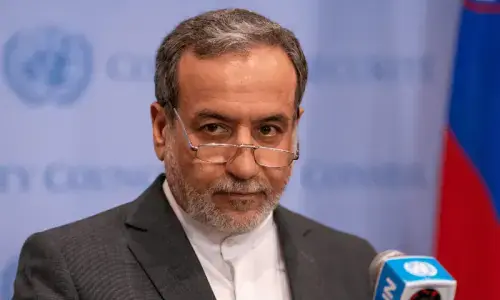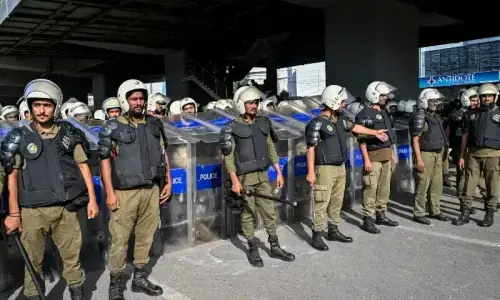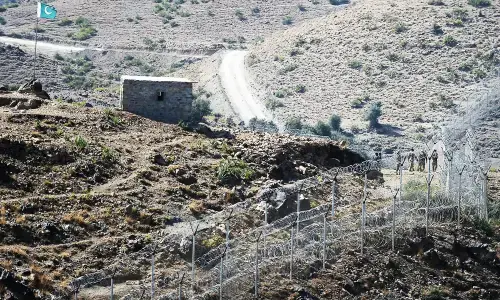The recent Association of Asian Studies conference held at Ashoka University in India highlighted an issue that scholars from South Asia have been dealing with for a very long time.
The issue in this case was not a paper or a panel discussion at the conference; instead it was the fact that attendees from Pakistan were banned by the Indian Ministry of External Affairs (MEA) from obtaining visas to travel to India.
Let me be clear: the problem is not just that the Indian MEA categorically denied Pakistani scholars visas, but the fact that Pakistani scholars operate in an ever-shrinking space regionally and globally to hone their skills and share ideas.
Unlike other regions of the world, scholars in South Asia are at a disadvantage when it comes to sharing scholarly work with their regional peers.
Visa limitations are one element; others include the absence of a mechanism to have potent and constructive sharing of ideas on economy, policy, social sciences and STEM subjects.
The South Asian Association for Regional Cooperation (Saarc) has had a difficult time creating such a framework when the two biggest countries in the organisation keep refusing to play ball.
Must read: Pakistan’s professor mafia
Specifically, for Pakistan, this is a serious issue as we are unable to benefit from the cutting edge regional knowledge being created and presented in journals, conferences and international forums.
Bangladesh, India, Sri Lanka and even Nepal seem to be on the same page given their cordial relationship, but Pakistan gets the short end as a result of its tensions with India. But that is just the tip of the iceberg.
Globally, the situation gets worse. Pakistani academics are few and far between in Europe and the US.
Dr Ishrat Hussain pointed out in his article recently that, over the last two and a half decades, the ratio of enrolled Pakistani students to Indian students in the US had fallen from 1:4 to 1:25.
He also acknowledged the issue that, while Indian-origin faculty is represented in nearly all top research universities in the US, Pakistani academics in the US are few and far between.
Based on personal experience within the field of political science, I concur with him on this assessment.
The lack of Pakistani-origin faculty in top universities matters because it reduces the chances for future Pakistani students to have access to these schools, have successful careers and forge paths for others to follow.
Mentorship matters and access to that mentorship is a crucial factor that makes or breaks careers.
Imagine being a young Pakistani student looking for someone to just seek advice from when considering doing a PhD from US or Australia.
You want to talk to an academic who is at a university in those places to get a clearer idea of what you are getting into and someone who can understand your context when you ask such questions.
Now imagine that, in department after department, you find no one who can relate to you, simply because there aren’t enough academics that Pakistan produces who can join such institutions.
The other problem is that of access. We talk about the lack of Pakistani academics and students in Western academia, but we never seem to discuss what helps Indian academics and students to be present practically everywhere.
While Pakistanis are sold the myth of only heading out to the top 20 or 30 universities in the world, our Indian counterparts tend to focus on a wide array of universities.
So, to begin with, Indian academics and students have a wider network to work with and build upon, while their Pakistani counterparts are stuck in a very narrow stream.
And yes, while the quality of work changes, the reality is that a critical mass and volume makes a difference with regards to visibility.
Related: I’m a professor and here’s how Pakistani public universities fabricate research degrees
Lastly, another issue that is often not discussed is the kind of economic and financial resources that are available to Indian scholars compared to those offered to Pakistani scholars.
While in India, commercial banks offer specific educational and career loan products to those seeking higher education abroad, in Pakistan our scholars hardly have access to such products. This limits the number of Pakistani students seeking education in the US and European countries.
Add to this the fact that Pakistani students must compete for open scholarships and Higher Education Commission-funded (HEC) programmes that further limits their access to education abroad.
Let me explain why I say that the HEC-funded programmes create a different set of issues. While students who get these scholarships can go abroad for education, they do not get a chance to develop and improve on their long-term career prospects.
Even the brightest minds are yanked out of the global academic market to come serve time in Pakistan at a point in their careers where they would be better suited to get further training abroad and compete in those markets.
This could be addressed by simply stating that academics on HEC funding need not come back immediately, but in fact be given an option to spend three years at intervals of over 15 years of their careers in Pakistan. That would have a bigger impact instead of simply bringing them back after graduating.
Additionally, there is no harm in providing HEC guarantees for academics seeking to go abroad for educational conferences.
In fact, the HEC should have a structure where financial support is offered to scholars trying to attend international conferences. It is only with this kind of support that we can get our scholars exposed to international trends.
Read next: Why Pakistanis are among the least innovative in the world
The recent visa issues for Pakistani academics to India highlight just one of the many ways in which we are limited in our access to international forums and educational opportunities.
The problem is much bigger and multi-faceted as I have mentioned above; access is one facet of it while financial resource availability is another.
If we are serious about competing globally and having visibility across American and European academia, we need to rethink the financial resources we are offered, as well as the kind of foreign access our scholars are offered.
Till then, comparing our academics to Indian or even Bangladeshi ones is unfair because the kind of odds we are working against are extraordinary.
Are you a Pakistani student or researcher facing hurdles due to your nationality? Share your experiences with us a blog@dawn.com

































